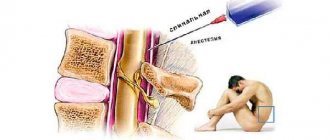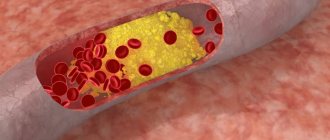In the scientific community, schizophrenia refers to a complex personality disorder at the psychological level, leading to disturbances in emotional reflexes and mental abilities. According to official statistics, 1% of people suffer from this disease, not counting those who are not aware of the problem. Treatment of schizophrenia is aimed at relieving acute symptoms, which gives the person a chance to return to normal life. But most people treat such patients with prejudice and negativity, which has given rise to many myths in this direction. They are baseless, but firmly rooted in the consciousness of the people.
Schizophrenics are dangerous to society due to cruelty and aggressiveness
This is also partly a myth. Many people have the impression that people with schizophrenia pose a threat to others. Mostly this is the negative influence of media and films. In fact, people with schizophrenia are as harmless as children. On the contrary, they themselves often become targets of criminal attacks.
A different scenario happens in the absence of proper treatment. Then, in the acute stage of the disease, a person is prone to violence under the influence of visions and delusional thoughts. It’s more scary when there are hallucinations of an auditory nature in the form of a call for specific hostile actions.
For example, in 2015, one resident of Nizhny Novgorod, during an exacerbation of schizophrenia, killed his own family (six children, wife and mother). He explained the action by saying that he heard an order to act in this way. Belov suffered from schizophrenia for a long time and repeatedly showed aggression towards his wife. Relatives tried to keep it a secret and did not seek help from doctors.
No less dangerous are delusional states associated with persecution mania. A person sees everyone and everything around him as a threat to himself. To protect himself, he often begins to defend himself from supposedly attacking people. Therefore, during an exacerbation of schizophrenia, relatives close to the patient are at greater risk.
Diagnosis of low-grade schizophrenia
This type of schizophrenic disorder is diagnosed with a frequency of 0.1 - 0.4%. In the early stages, it is quite difficult to establish a diagnosis of sluggish schizophrenia, because schizophrenic psychoses and obvious productive signs of pathology are absent. The predominant symptoms may constitute a picture of one or another disease.
To confirm the diagnosis, the psychiatrist needs to conduct a thorough analysis of the patient’s personal data and determine whether cases of schizophrenia have occurred among blood relatives. It is important to pay attention to the presence of productive symptoms, such as:
- self-perception disorder;
- strange, inexplicable sensations in the body;
- visual, gustatory, auditory hallucinations;
- causeless anxiety;
- paranoia.
Schizophrenia can develop due to flaws in upbringing
One of the causes of schizophrenia is considered to be improper upbringing. In particular, we are talking about a lack of attention from the mother. In fact, blaming parents in this matter is baseless. No matter how coldly they treat their own child, this cannot provoke illness years later. Schizophrenia is a serious mental disorder, the development of which is caused by a whole complex of negative factors. Here are some of them:
- predisposition at the genetic level;
- head injuries;
- frequent stressful situations;
- brain dysfunction and so on.
There are still many questions in this regard to which scientists have not received accurate answers.
Signs of low-grade schizophrenia
Signs of low-grade schizophrenia differ depending on which type of mental disorder is progressing:
- Neurosis-like sluggish schizophrenia. Often manifested by fears and obsession. A person is afraid to be in crowded open places, he is afraid of contracting some terrible, incurable disease, he refuses to travel on a certain type of transport, etc. All these phobias are often accompanied by neuroses, obsessive thoughts and actions.
- Psychopathic-like schizophrenia. It often occurs with a phenomenon called depersonalization. As the disease progresses, the person begins to think that he has lost touch with his self, his past life and the events in it. Such patients develop insensitivity over time; no events can evoke emotions or a spiritual response in them. Often this type of schizophrenia is accompanied by hysteria, delusional ideas, and irreversible personality changes.
If one of the parents suffers from schizophrenia, the child cannot avoid a similar fate
It is believed that parents with schizophrenia give birth to a mentally ill child. This statement is fundamentally incorrect. Heredity cannot be ruled out, but it is not the disease that is transmitted, but the tendency to it. Therefore, it is wrong to give up on a child whose mother and father or one of them suffers from schizophrenia.
The theoretical probability of inheriting the disease is estimated at 67-88%. But in reality the numbers are not so scary:
- in identical twins (even those with a genetic predisposition) - 45-47%;
- Mom or dad is sick - 14%, both - 45%;
- the diagnosis was made to close relatives – about 5%.
Various types of research continue to establish the degree of inheritance of schizophrenia. But so far the results are mixed and preliminary. Scientists already know specific genes that can trigger the development of the disease. This is revealed by reading genetic information and carefully studying it.
More precise data were obtained by trying to link this disease to changes in the gene component of several candidates. Thus, the majority of schizophrenics have a polyform type of serotonin, dopamine and COMT genes. But their presence can also be associated with other mental disorders. So, even if there is a complete breakdown of the genotype, it is impossible to give an accurate forecast of whether a person will develop schizophrenia or not.
Treatment programs
Treatment of depression
Panic attacks
Treatment of schizophrenia
Neuroses, phobias
Cancerophobia
One of the most common forms of hypochondria is cancerophobia, in which a healthy person is afraid of getting cancer. A variety of people all over the world suffer from it, because many people know that cancer is a common cause of death (second only, however, to cardiovascular diseases, which no one is so afraid of), and not everyone tolerates treatment for them easily.
Cancerophobia occurs for various reasons. The basis for it may include:
1) reaction to the death of a loved one from cancer;
2) reaction to surgery to remove benign tumors or cysts;
3) the doctor’s comment during the examination (the comment is perceived as a hint or warning);
4) the presence of precancerous diseases (cervical erosion, stomach ulcers, etc.);
5) obsessive-compulsive neurosis, hypochondria, psychopathy, depression, schizophrenia;
6) generalized anxiety disorder;
7) chronic stress, which is accompanied by sudden weight loss;
 chronic pain syndrome (for example, migraine);
chronic pain syndrome (for example, migraine);
9) menopause, when a woman is forced to undergo regular preventive examinations.
Advertising of medicinal and preventive products that supposedly prevent the development of malignant neoplasms also does not add confidence to people in the future and, in fact, seems to push them to the thought: “Do I have cancer?”
All this, of course, does not mean that you need to ignore alarming symptoms, attributing them exclusively to cancerophobia. However, it is necessary to distinguish its effect from truly important changes in health. One of the best ways to do this (and deal with cancerophobia, as well as other similar conditions) is to go to the doctor. No matter how frightening this need may seem (“What if they find something?”), as a rule, a visit to the clinic ends with a feeling of relief. This step itself—visiting a doctor—should be perceived as therapy, an effective way to cope with the horror that has haunted us for a long time. Cancerophobia constantly distracts attention, forces you to listen to yourself, look for lists of symptoms, and this makes you even more scared.
If the fear does not go away after contacting doctors, or if a person knows that he has obsessive-compulsive disorder, hypochondria, psychopathy, depression, schizophrenia, anxiety disorder or other problems, psychotherapy will help to cope with the phobia - along with the underlying mental illness. Maintaining mental health is as necessary as treating your teeth or ears - and there is absolutely no reason to be ashamed of it (after all, we are not ashamed of having been to the dentist or ENT specialist).
Schizophrenia leads to dementia
In life, you can encounter different clinical variants of the development of schizophrenia. Each case is individual. In some, the development of schizophrenia is practically asymptomatic and does not in any way affect mental capabilities. Such patients are still able to think rationally, learn successfully, and do not suffer from memory loss and other manifestations characteristic of schizophrenia.
Other people with a similar diagnosis show obvious deviations at the emotional and mental level. With each new attack, the situation worsens and over time leads to the fact that the person is unable to independently perform basic everyday activities, much less work. There are especially severe forms when the disease progresses rapidly and quickly leads to disability.
No doctor can say for sure what awaits a person with schizophrenia. Despite numerous studies in this direction, science is still powerless. You can compare the state of the brain at different time stages, based on which you can make an approximate forecast.
Cases have been recorded where people suffering from schizophrenia for a long time remain completely adequate and do not lose basic life skills. For example, Nobel laureate D.F. Nash was schizophrenic. But this did not stop him from successfully teaching at the university.
Psychiatrist consultation
24-hour telephone number to contact the doctor on duty: 8 (831) 266-03-06.
Any request for medical help is a medical confidentiality and cannot be disclosed.
Anonymity guaranteed!
Definition
Latent schizophrenia occurs in a mild form, psychotic manifestations are observed very rarely. Pathology is not listed in ICD-10. A code close to it is F21.1 “schizotypal disorder.” People with this pathology suffer from oppression of the volitional sphere - they are stubborn, capricious and fickle. Such a person is unable to stick to his words and promises. Weak will is expressed in a lack of strength of drives - in apathy, lack of internal resilience. There is a disorder of unity of desires and defects in inhibition - outwardly this manifests itself as frivolity.
Abulia (lack of will) provokes multiple conflicts with other people. Outsiders perceive patients as excessively lazy, careless, since there is a noticeable lack of attraction and motivation for any activity. Relatives and friends tend to believe that the patient does not want to do anything on his own initiative. A situation is possible when the patient expresses desire and aspiration, but does not transfer them to practical activities.
Another external manifestation of the disease is sudden, thoughtless actions, without understanding the threatening consequences. The patient demonstrates indifference to people and external events. Hyperbulia is characteristic - a person energetically begins to do what suddenly comes to his mind. Such sudden, often devoid of logic, actions are carried out with extraordinary restraint. There are sharp jumps between abulia and hyperbulia.
Patients demonstrate abnormal thinking, not reaching the point of delusional ideas. Problems in thinking are expressed in strange hobbies, peculiar, specific logic. Problems are noticeable in the construction of the associative series.
The emotional sphere is also disturbed - the person becomes “cold” towards other people, tries to distance himself from communication as much as possible. Behavior is described as “eccentric,” and there is a tendency toward mystical reasoning. The disease is difficult to separate from other psychopathologies. The central feature of latent schizophrenia is the absence of acute psychotic manifestations. The patient has relatively normal social adaptation, although there are difficulties in interpersonal interaction.
With this diagnosis, you need to take medications for the rest of your life.
So far, the only effective way to combat schizophrenia is medication. During consultation with a psychiatrist, a treatment regimen is developed for each patient based on the use of appropriate psychotropic medications. After completing the prescribed course, the doctor assesses the patient’s condition and may allow a break. If favorable dynamics are observed after this, the doctor stops the medications.
Schizophrenia is a difficult test for a person. For such patients, outside support is important, and the myths that have taken root among people about this disease only complicate everything. Therefore, upon learning of the diagnosis, many become severely depressed and begin to think about suicide. Only professional help will help such patients adequately recognize the problem and set them up for recovery, since schizophrenia is treatable.
Make an appointment
Symptoms of low-grade schizophrenia
The first signs of the disease often begin to appear already in adolescence, however, it is problematic to establish the time of manifestation of the pathology, since the clinical picture is blurred. The difference between sluggish schizophrenia and the classical form of the disorder is that the patient is completely absent of delusions and hallucinations. A person ceases to show activity and interest in surrounding events. Over time, his circle of interests narrows, his behavior becomes eccentric, his thinking and speech become demonstrative and pretentious.
As it progresses, the symptoms of low-grade schizophrenia become more severe. The patient begins to experience unreasonable fears, he is haunted by obsessive thoughts and depression. One’s actions are perceived as if from the outside, and they occasionally disturb:
- paranoia;
- various kinds of phobias;
- signs of hysteria;
- frequent mood changes;
- increased fatigue.
Symptoms increase gradually, sometimes over years. Therefore, the disorder is difficult to notice in time by others and by the patient himself, which is why the disease is dangerous.
Taking into account developing symptoms, the following stages of pathology are distinguished:
- Latent. It is characterized by mild symptoms and often goes unnoticed even by relatives. The patient refuses to communicate with others, leave home, or do important things. A depressive mood and nervous overexcitation often appear.
- Active. The signs of the disorder become pronounced, so even those around them see that something is wrong with the person. Hallucinations and delusions are absent in this form of schizophrenia, so even at the active stage, diagnosing the pathology is difficult. The patient is often bothered by panic attacks, unreasonable fears and worries.
- Weakened. The symptoms disappear, the condition returns to normal. With sluggish schizophrenia, the period of calm can last for decades.
If the pathology is diagnosed and treated in a timely manner, it will be possible to significantly slow down the progression of symptoms.
How to recognize schizophrenia
Most often, patients experience auditory hallucinations and conduct conversations without an interlocutor. At such moments a person looks tense. According to relatives, the patient does not seem to hear them, but listens to other voices. He may express bright ideas and thoughts, but they do not correspond to reality.
Sergey, 45 years old. Diagnosis: schizophrenia.
I exist in two different worlds, and when the unreal world comes, I begin to struggle. First I increase the dose of tablets. I'm a weather addict, so two or three days before the weather changes I get anxious. This can happen at any time of the year, but is more common in the fall and spring. The flow of thoughts doesn’t interfere for the time being, I can cope with them, but it’s tiring. I try to distract myself, switch my attention to real objects around me: doors, chairs, cabinets. At such moments, you won’t watch anything or listen to music—you’ll be left alone with yourself. If you try not to think about it, it will be even worse. So I'm going through my thoughts and it helps.
Peter, 25 years old. Diagnosis: schizotypal disorder
When I entered MIPT, my thinking and communication skills were poor, but I passed the exams at the best technical university in the country without any problems. I was like a robot that can solve complex problems, but is not capable of communication, cannot feel the interlocutor. I tried to use breathing practices, struggled with myself, but after two sessions I decided that I didn’t know anything and I needed to go back to the first course. Went to St. Petersburg to study at the Polytechnic Institute. There, a sense of clarity returned to me. The headache subsided, and life acquired color. I achieved this through meditation: I looked at the pain from the inside, and it dissolved, I felt very good, my body was filled with euphoria. I learned to evoke this feeling at any moment: on the street, at the university, in the dormitory. One day I was lying in this euphoria, falling asleep, when at three in the morning my neighbor woke me up with a very loud laugh. I felt intense anger, but kept the reaction to myself. Then several more similar situations happened, and I was simply torn apart! Fierce anger outweighed the feeling of euphoria, which I now could not return with any meditation. I couldn’t sleep for three days, couldn’t relax, obsessive thoughts and ideas began, which got worse almost every day for six months. These thoughts began to be felt physically, they hit the body with blows, reverberated into the arms and legs. Now I know that this is senestopathy, a bodily pseudohallucination. It's like a strong emotion that would leave a feeling in the chest for the average person. Here they reverberated in the limbs, in the back and left long traces. I was completely overwhelmed by these sensations. I once read that infrasound beyond hearing range is harmful to health. I became fixated: I began to sleep worse because of the neighbor’s laptop, which “threatened” with coolers. He began to behave strangely, turning off his neighbor’s laptop when he left the room. This then transferred to all electrical appliances plugged into the outlet. The psychosis manifested itself when I began to experience severe panic attacks. One day in the store I felt like I was going to die. My legs were numb, I barely made it to the cash register, then to the hostel, where I crawled under the blanket and thought that this was the end. I called an ambulance twice. The first time they advised me to see a psychiatrist, and the second time they simply swore at me.
Agoraphobia
Agoraphobia
- a mental disorder in which a person experiences fear of open space or large crowds of people. The disorder occurs as a result of chronic stress, chronic fatigue, and psychological trauma. Residents of megacities constantly experience stress; they often have to be among large crowds of people (in the subway, traffic jams). The degree of agoraphobia can vary: some people are afraid to go into the subway, while others don’t want to go outside.
Symptoms
- Rapid heartbeat and breathing, feeling of lack of air.
- Fear of death.
- Sweating, dizziness, tremors.
- Panic attack.
- Feeling of anxiety when being in public places.
- The desire to isolate yourself from society.
- Nausea.
- Fear of going crazy.
Causes
- Genetics, the presence of phobias in one of the parents. Unfavorable environment in childhood.
- Psychological and mental characteristics of the individual.
- Stress and traumatic situation.
- Having a phobia.
Neurasthenia
Neurasthenia
- a pathology of the nervous system that occurs after excessive mental and physical stress, so common in a big city.
Symptoms
- Fast fatiguability.
- Headaches and heartaches.
- Tachycardia.
- Decreased libido, premature ejaculation.
- Problems with the gastrointestinal tract.
- Excessive irritability, sudden mood swings.
- Low performance, inability to concentrate.
- Lethargy, lack of interest in life.
- Sleep problems (difficulty falling asleep, waking up at night).
- Difficulty remembering information.
Causes
- Excessive stress at work.
- Lack of sleep and rest.
- Stressful situations.
- Chronic diseases of internal organs.
- Oncological or autoimmune diseases.
- Intoxication of the body.
- Deficiency of vitamins and minerals.
Treatment of low-grade schizophrenia
Before starting treatment for sluggish schizophrenia, a psychiatrist at the Salvation clinic will observe the patient for several months, and only after that will make a final diagnosis. During this time, the doctor constantly talks with the patient’s relatives, asks about his behavior, analyzes the data and the dynamics of their development. In addition, the patient is given a referral for the following diagnostic studies:
- magnetic resonance and computed tomography;
- encephalography;
- duplex scanning;
- psychological tests;
- neurotesting.
Treatment for this type of schizophrenic disorder is complex. Specialists at the Salvation clinic use modern, safe, effective methods of therapy that help stop the progression of the pathology, maintain the patient’s ability to work and adapt to society.
The following methods are used for treatment at the Svoboda clinic:
- Drug therapy. Medications are prescribed: antipsychotics, tranquilizers, drugs that normalize the functioning of the nervous system. The treatment regimen is selected taking into account individual indications. The drugs used in our clinic do not cause side effects, do not contain harmful substances, and do not affect the psyche and the ability to think normally.
- Psychotherapy. Psychotherapy sessions help correct the patient’s behavioral reaction, increase his self-esteem, prevent isolation from family and society, and maintain his ability to work. The psychotherapist teaches the patient to control thoughts and emotions, behave correctly in society, not to despair and not to become depressed in the event of failures and defeats.
- Briefing. Throughout the entire treatment period, specialists conduct individual consultations with the patient. They advise how to behave in the family, society, what activity is best to choose in order to feel comfortable and safe.
- Working with family. Psychiatrists necessarily interact with the patient’s relatives. They tell relatives how to behave with a person suffering from sluggish schizophrenia, how to help and support him in difficult situations, and for which symptoms it is better to go to the hospital.
During periods of remission, communication with the doctor is not interrupted. The doctor regularly talks and advises the patient, and adjusts the list of medications as necessary. For schizophrenics, group classes are useful, during which people who find themselves in the same situation share problems and experiences in eliminating them. Communication takes place under the supervision of a psychiatrist, who also takes part in the conversation and gives useful advice and recommendations.
To prevent sluggish schizophrenia from progressing and the patient to feel normal, in addition to taking medications, it is necessary to adhere to the following rules:
- Maintain a daily routine. Go to bed, wake up, eat, walk and rest at the same time.
- To walk outside. Daily walks in the park are useful, you can ride a bicycle, rollerblades, or skateboard. It is better to walk when it is not too hot outside, otherwise overheating will worsen the condition.
- Eliminate the stress factor. It is better to avoid conflicts and stressful situations that cause nervous overload and a surge of negative emotions.
- Normalize nutrition. In case of mental disorders, it is better to exclude from the menu foods that stimulate the nervous system - coffee, strong tea, fatty, spicy, salty foods, alcohol.
- Connect light sports. Physical activity has a beneficial effect on the entire body. Daily morning exercises, swimming, yoga, and fitness promote the production of joy hormones, stimulate blood circulation, train muscles, and increase stress resistance.
At the Salvation clinic, highly qualified specialists successfully treat schizophrenic disorders. If a patient requires hospitalization, he is admitted to a hospital where a team of doctors monitors his condition. Treatment at the clinic is inexpensive, prices for services are open, they include the cost of all necessary procedures. Here you can really get real help and recover from a mental disorder.











